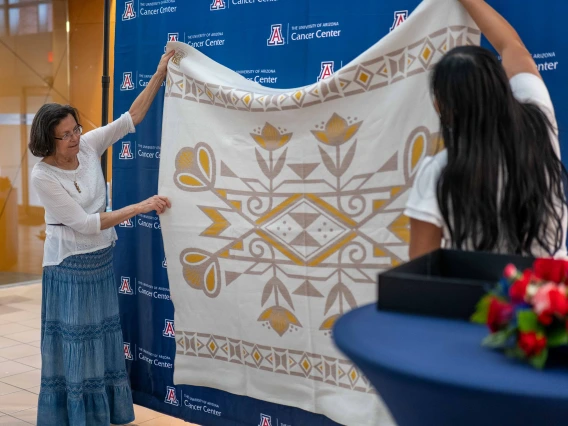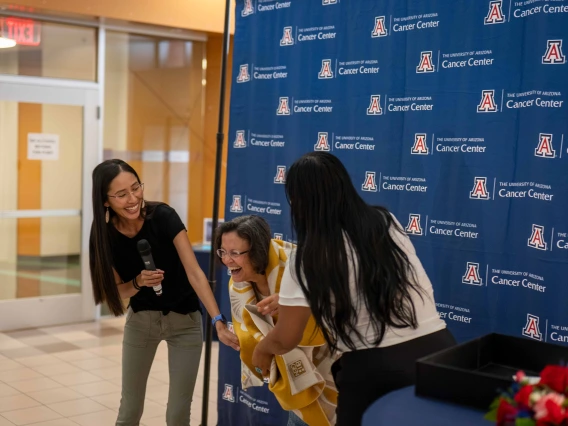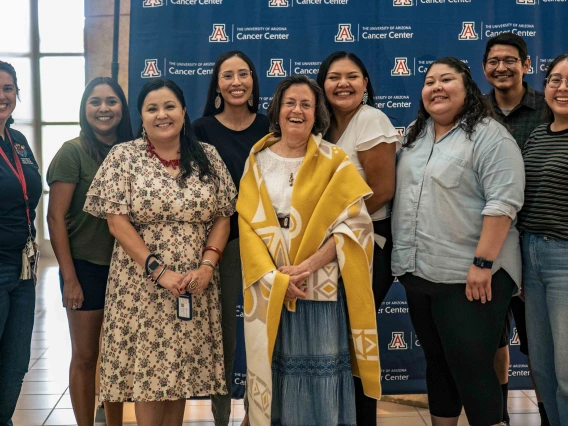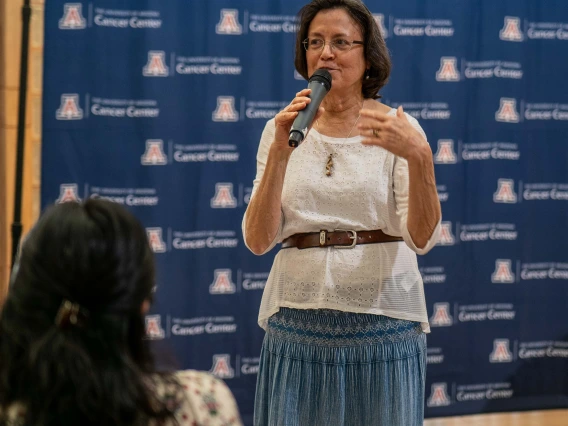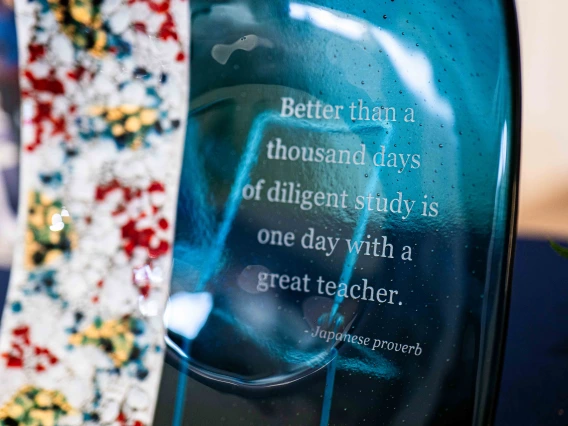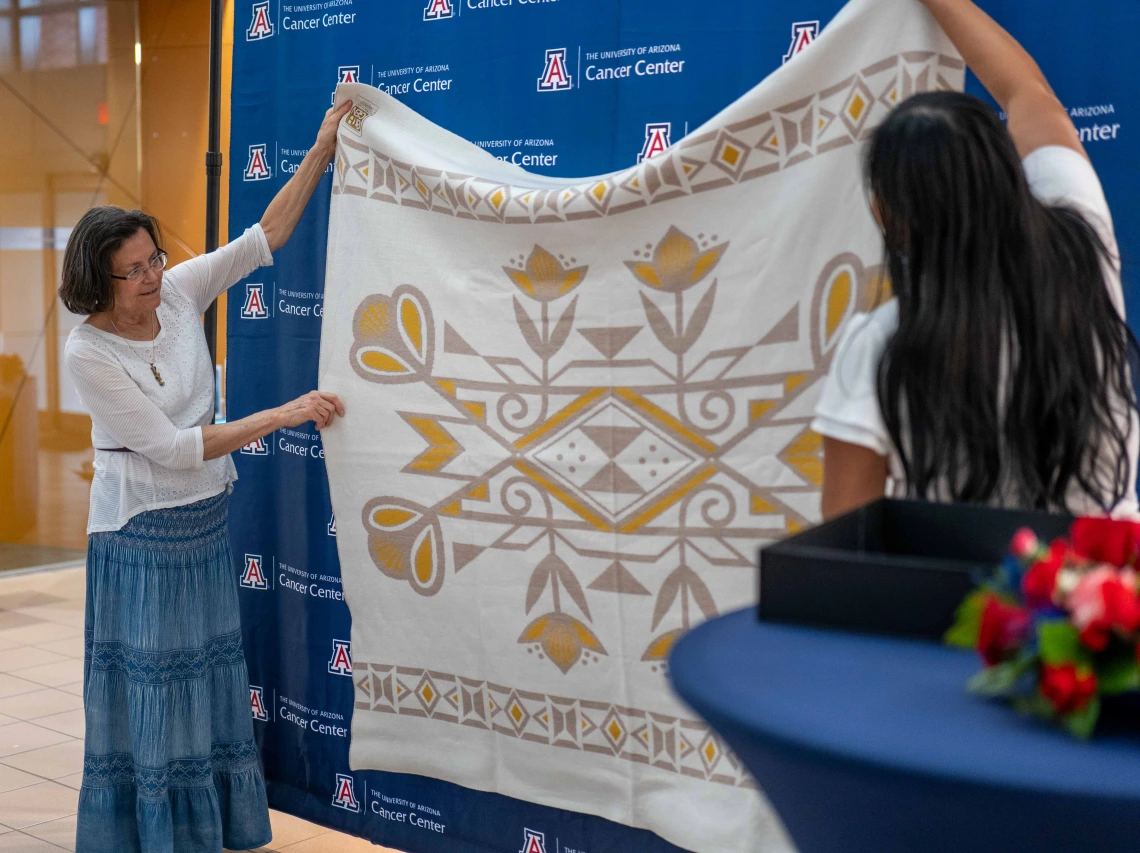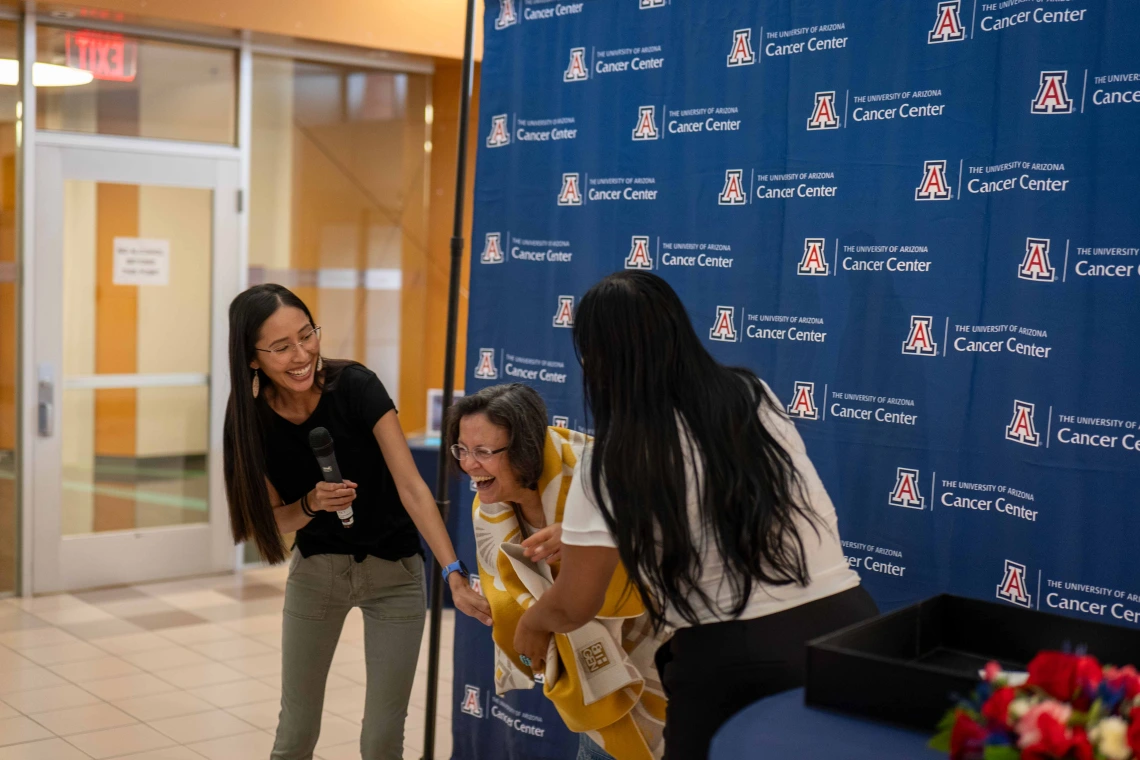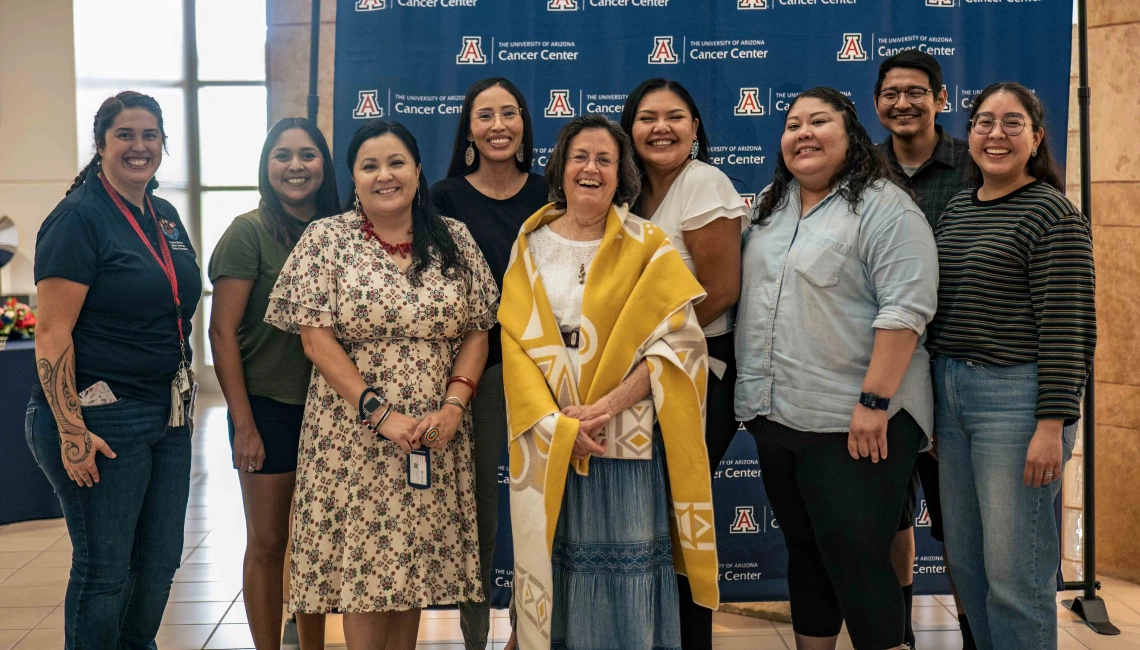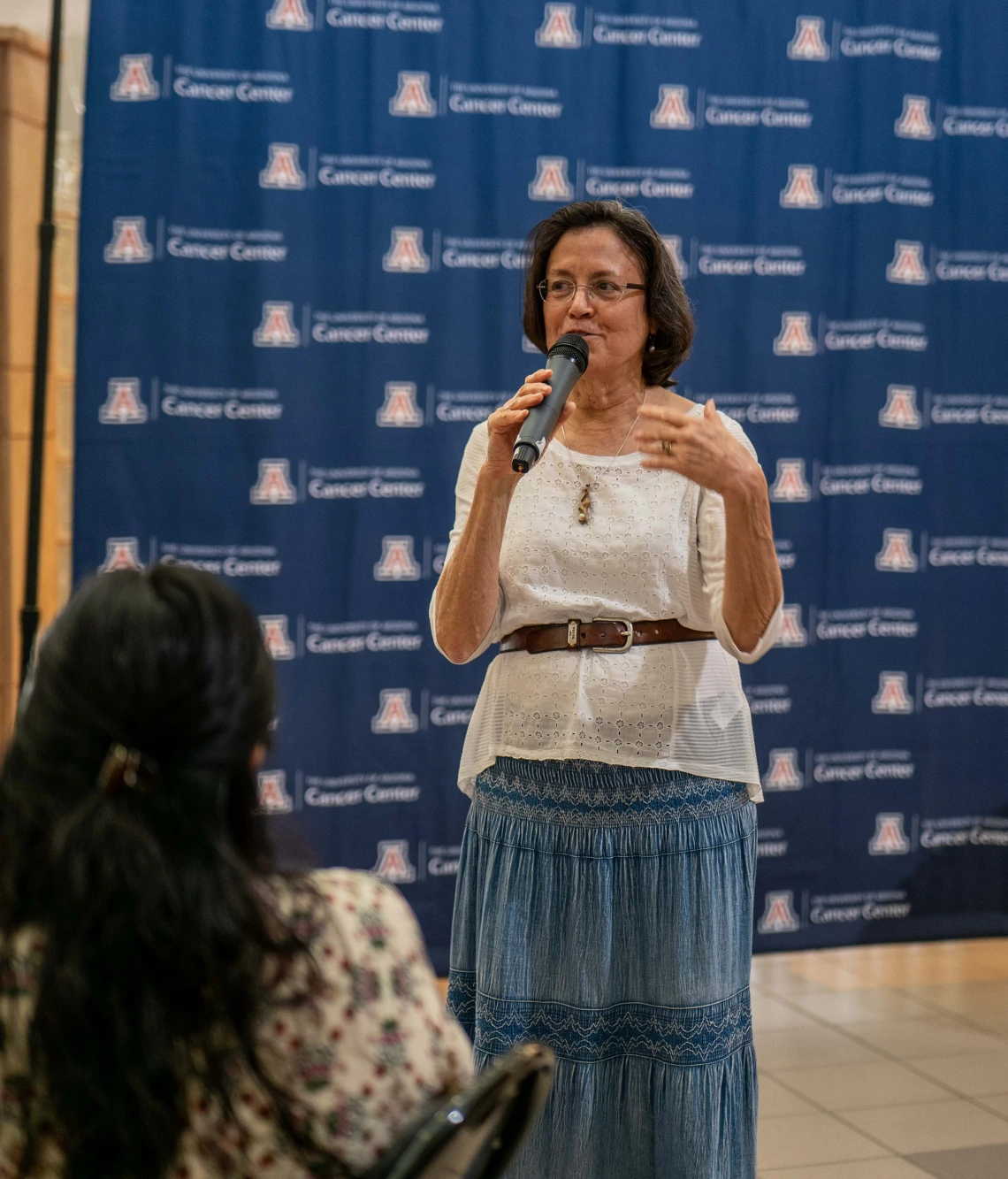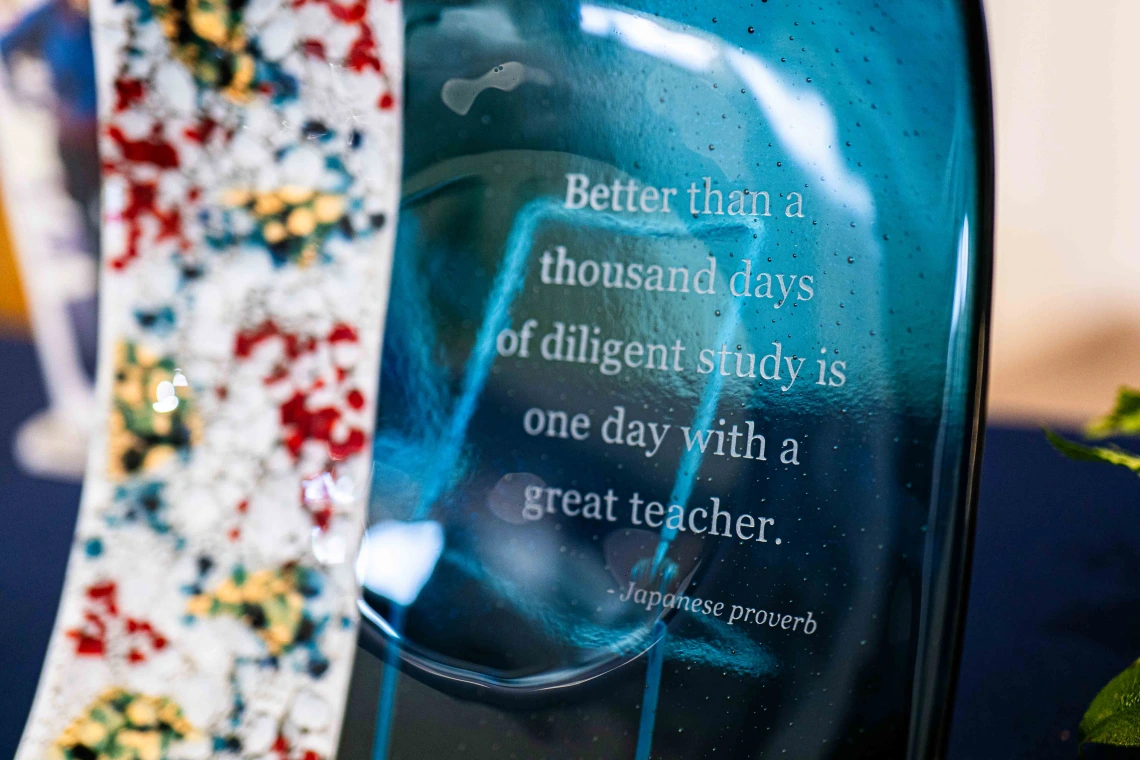Margaret Briehl: Innovative scientist, invaluable mentor
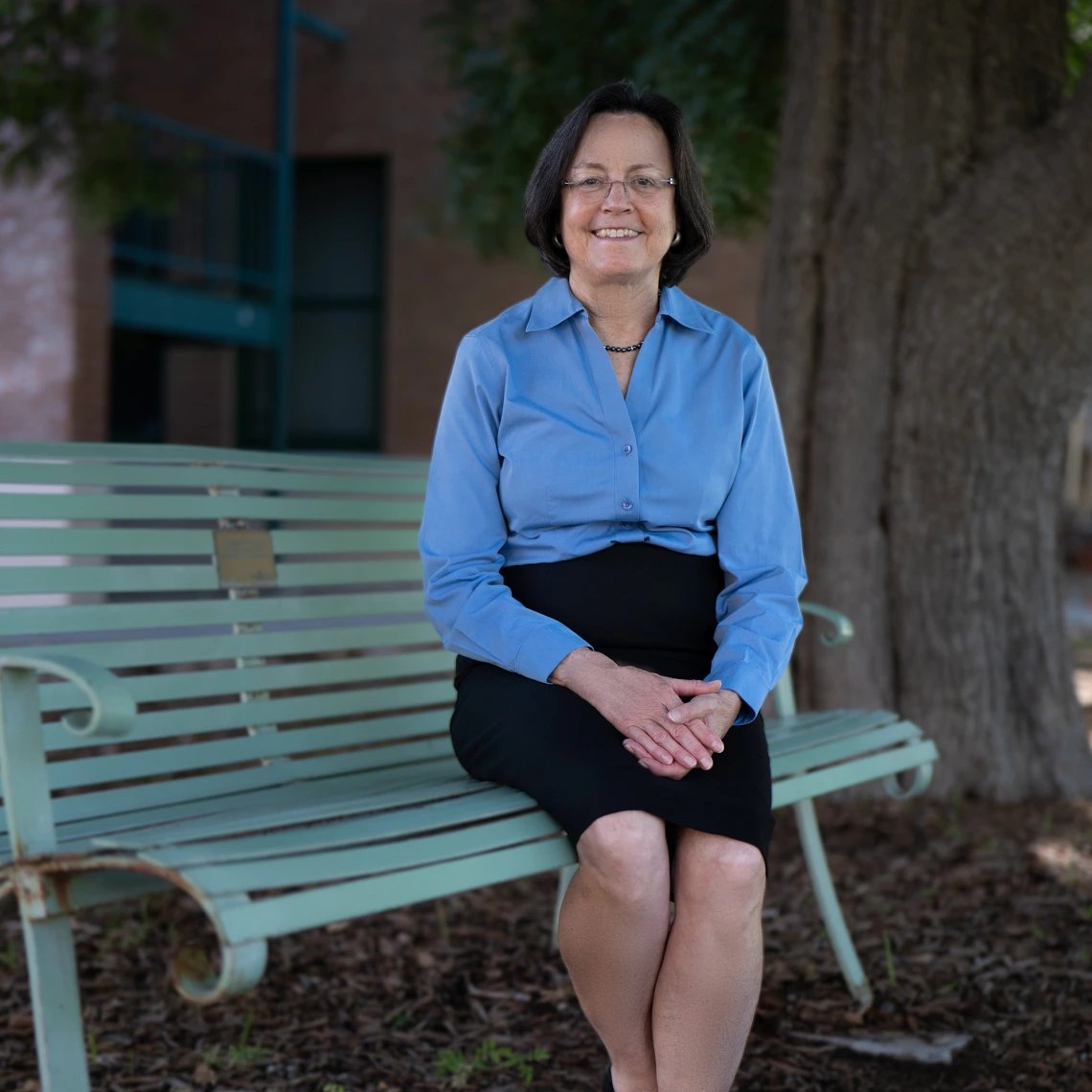
When Margaret Briehl, PhD, was in eighth grade, she had an inspiring science teacher who did a project with her students where they scooped out a vial of water from a small creek that ran behind their school. The students each put a drop of the creek water under a microscope to observe the living organisms found there.
“It was the first time I had ever used a microscope, and it was amazing to see all of the creatures,” she said. “It was the whole idea that there's another world that we cannot see with our eyes. I just loved that idea.”
That brief encounter with science changed her life and created her lifelong interest in scientific discovery.
Now retiring after more than 35 years at UArizona, Dr. Briehl still has a love for science, and, almost more important to her, follows in the footsteps of her science teacher through her deep commitment to training the next generation of scientists and physicians.
As the Cancer Center’s associate director for Cancer Research Education and Training Coordination, Briehl facilitates career development at all educational levels, from high school students interested in future careers in science to graduate students completing their doctorate.
Briehl has been an active member of the Cancer Biology Graduate Interdisciplinary Program since the late 1990s, serving as vice chair from 2013–2018 and chair from 2018–2020. She also initiated the Cancer Biology PhD Program’s Colloquium series, a core part of the doctoral program, where students present an annual update of their research.
“I think some of the very important skills our scientists gain is how to tell the story of the research they've done in a way that's clear and compelling,” she said. “They must interpret the results and explain why they did what they did, how they did it, and also how they conducted the research in a way that was rigorous.”
Investing in the Partnership for Native American Cancer Prevention
MicrosoftTeams-image (8).png
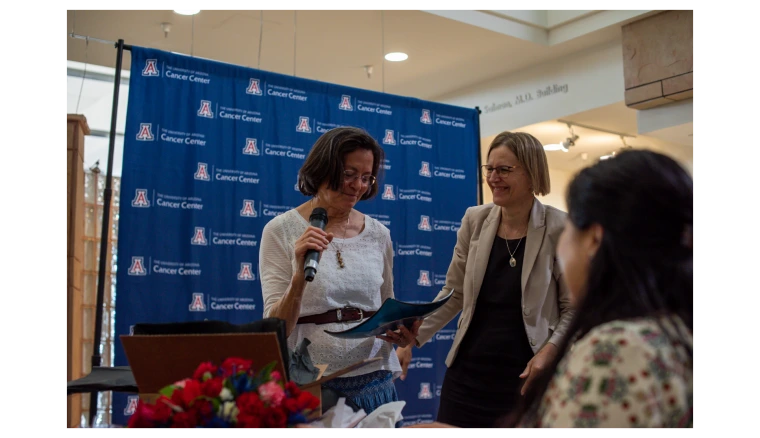
At her going away event, Dr. Briehl, left, accepts an engraved bowl from Dr. Sweasy.
Since its inception 20 years ago, Briehl has been involved in the Partnership for Native American Cancer Prevention (NACP)—a project that works to reduce cancer health disparities through research, education, and outreach. She led an NACP research project from 2003 to 2008, led the NACP’s Research Education Core from 2009 to 2020 and has been a Principal Investigator for the NACP since 2020.
Monica Yellowhair, PhD, assistant director for the Cancer Center’s Community Outreach and Engagement, was a former student on the NACP project almost 10 years ago.
“Dr. Briehl has been a tremendous driving force for the UACC as well as the many students she has inspired, me included,” Yellowhair said. “I’ve had the privilege of working with Margaret throughout the many years and in various capacities. She has a spark that motivates you and has a huge impact in increasing representation of BIPOC students in cancer research.”
Briehl is also the principal investigator for a Postbaccalaureate Research Education Program that prepares American Indian scholars for biomedical PhD programs.
In all, Briehl has mentored 44 Native American undergraduates from 11 tribes or nations: Navajo, Tohono O’odham, Yacqui, Hopi, San Carlos Apache, White Mountain Apache, Cherokee, Creek, Choctaw, Chemeheuvi and Chippewa Cree. She has served on 64 master’s and doctoral students’ thesis and dissertation committees.
One of the students Briehl has mentored in her post-baccalaureate program is Allison Watson, a student now in the UArizona Immunobiology doctoral program. Watson said that no matter the situation, Briehl is always patient, kind, and willing to give her time, energy, and knowledge to her students.
MicrosoftTeams-image (11).png
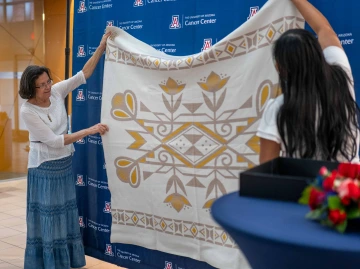
Margaret Briehl, left, holds up a blanket given to her by her students at her retirement event.
“Dr. Briehl's mentoring guided me in many ways that I will cherish forever. She has always been encouraging, offering her best advice and resources, and most importantly, navigated me through the ups and downs of pursuing graduate school,” Watson said. “Coming from an underrepresented background, Dr. Briehl showed me the value of a great mentorship at such a high level from the moment I met her and I'm always going to be appreciative for how many doors she opened for me. She helped me build my own foundation to be successful throughout my career and be the scientist that I want to be. For that, I am eternally grateful for Dr. Briehl and her guidance.”
Colin Nelson, a student that Briehl mentored who is now in the Cancer Biology PhD program, said that he admires Briehl’s intelligence, optimism, spiritually and integrity.
"Dr. Briehl as a mentor not only guided me to pursue my career in cancer biology but also helped support me and counsel me as an individual,” Nelson said. “Her work ethic and compassion shines in her mentorship and the way she interacts with her students and mentees is uplifting. The guidance and leadership Dr. Briehl has displayed working here at the University of Arizona was outstanding.”
Forging her way in Cancer Center history
After earning her doctorate from UArizona in 1988, Briehl began her postdoctoral research on the third floor of the Cancer Center with Roger Miesfeld, PhD, UArizona professor in chemistry and biochemistry and the BIO5 Institute.
Briehl’s postdoctoral research focused on the regulation of apoptosis, or programmed cell death, with an emphasis on understanding therapy resistance in cancers of white blood cells.
“I was there in the early days, when apoptosis became appreciated as something very important in human health,” she said. “It was really exciting to go to the meetings and watch the field’s rapid development.”
She said that what she enjoyed most about her work at the Cancer Center is having good mentors and colleagues who are engaged in cutting-edge research.
“Margaret was a great addition to my lab when I first started out in the Arizona Cancer Center as an assistant professor of biochemistry in 1987,” Miesfeld said. “Syd Salmon was the Cancer Center director and Jeff Trent was the director of basic science at that time. Margaret brought the can-do attitude to the lab and helped me train the graduate students as we embarked on a study of the use of glucocorticoid therapy in the treatment of childhood leukemia.”
Miesfeld said that Briehl was always ready to offer thoughtful comments at lab meetings and provided an enthusiasm for science that set the tone for the lab.
“It was a pleasure to work with her at that critical time in my academic career,” Miesfeld said. “Margaret is a people person, and she uses this skill as a peacemaker when resolution needs a cool head.”
In 2012, Briehl was awarded the Distinguished Service Award from the Society for Redox Biology and Medicine. She was named a fellow of the Society for Redox Biology and Medicine in 2019. She was selected for The UArizona College of Medicine’s Vernon and Virginia Furrow Award for Graduate Student Education a year later.
Leaving a legacy
Dr. Briehl-1.png.Under a shady Chinese pistache on the UArizona main campus sits a bench dedicated to Dr. Briehl from her family with an engraved plaque stating simply: Scientist, mentor, teacher, wife, mother, grandmother, friend. The bench is next to another bench dedicated to her husband, Dennis T. Ray, PhD, an emeritus Distinguished Professor from the UArizona School of Plant Sciences.Dr. Briehl’s plaque demonstrates where she has devoted her energy for the last 35 years. In addition to her bench, she also has a tile in UArizona’s Women’s Plaza of Honor.
“Margaret’s career has spanned the administrations of all five Cancer Center directors,” said UACC director, Joann Sweasy, PhD. “It’s been an honor to work alongside her, to learn from her, and though we’ll miss her greatly, I know her mentorship has helped cultivate the next generation of innovative researchers and leaders. Her scientific research has made an important contribution to understanding cancer, and it will continue through her students for many years to come."
“Her service to the University of Arizona in the areas of science, mentoring, and leadership have been exemplary and I wish her the very best of times in retirement,” Miesfeld said.




